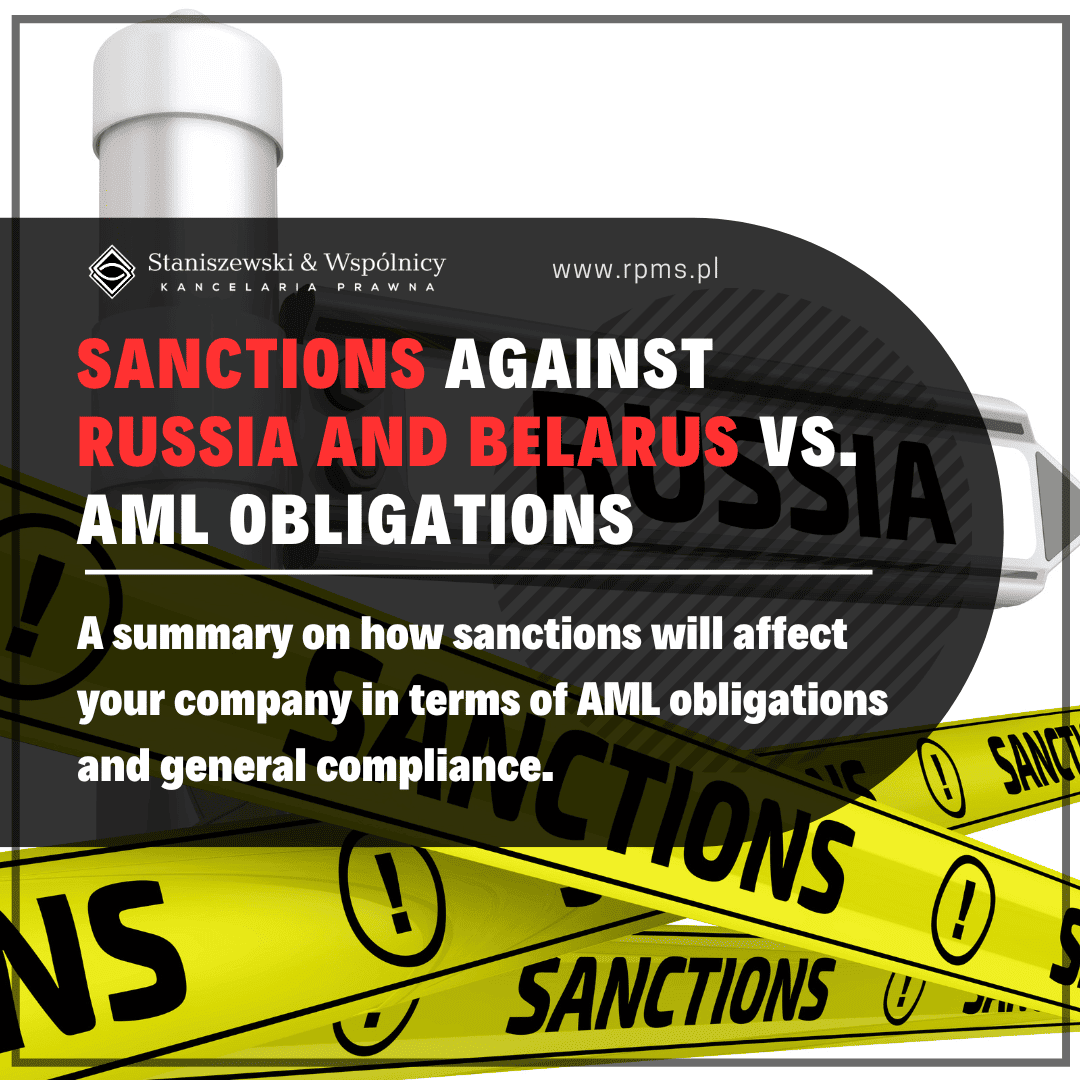Table of contents
A Limited Liability Company is a legal form of a business entity that allows for a relatively easy transfer of shares. Another advantage of this legal structure is the ability to admit a new shareholder into the company, often serving as an investor, or for an existing shareholder to exit the company. Many entrepreneurs also appreciate that changes in the ownership structure of the company do not impact its day-to-day operations. However, there are certain considerations and regulations to keep in mind when planning transactions involving shares in a Limited Liability Company.
Selling Shares in Poland – General Remarks

A share in a Limited Liability Company represents a portion of the LLC’s capital and constitutes a capital connection between a shareholder and the company. Each share has a specified nominal value as defined in the company’s articles of association. Shares should also be understood as a set of shareholder’s rights and obligations. According to the provisions of The Code of Commercial Companies and Partnerships (hereinafter as: ‘KSH’), shares can be transferred to another person. This means that the composition of shareholders can change, and it may also increase after the procedure of increasing the share capital or decrease after a reduction. Each Shareholder has the right to sell both all and part of their shares.
The acquisition of shares by a new shareholder results in their secondary entry into the rights and obligations of a shareholder in case of purchase by a person who was not previously a shareholder in the Limited Liability Company. In the case of the acquisition of shares by an existing shareholder (resulting in an increase in the number of shares held in the company), we can speak not so much of total acquisition as of the expansion of existing rights and obligations. The percentage of shares held in an LLC determines the legal position of the shareholder in the company. In essence, the larger the share, the more favorable the position of the shareholder, who, by holding a majority of shares, has more impact on the decision-making process, in particular regarding the composition of the management board or changes to the company’s articles of association.
When Does Ownership of Shares Transfer?
It is important to note that merely entering into a share sale agreement does not automatically confer the status of a new Shareholder on the buyer, with implications for the Company. To achieve this, certain procedural requirements must be met.
First and foremost, the Company should be informed about the buyer of the shares. Notifying the company about the share transaction is the initial step a new Shareholder should take. Pursuant to Article 187 § 1 of the KSH, interested parties are obligated to notify the company of the transfer of shares, providing evidence of the transfer of this right.
Notification of the purchase or sale of shares is a formal requirement. Once this notification is completed, the new shareholder will acquire the title of a company shareholder, be entered into the share register, and also be registered with the National Court Register. Importantly, the notification of the share sale transaction can be submitted by either party, the buyer or the seller. It is advisable to specify this matter in the sale agreement. Until the notification of the sale of shares occurs, the company will not consider the new buyer as a shareholder; they will merely be the owner of the shares. The owner of the share, without the status of a shareholder, will not have corporate rights (including the right to dividends, the right to vote at shareholder meetings) or obligations (including the obligation to make contributions to the share capital, etc.) – these rights and obligations will still be attributed to the previous owner of the shares.
In accordance with the aforementioned Article 187 § 1, a prerequisite for a valid notification of the purchase of shares is the submission of the original sale agreement to the LLC. Failure to meet this condition may render the notification ineffective. Unfortunately, individuals acquiring shares in limited liability companies often do not give sufficient attention to meeting this requirement, leading to various legal complications and issues.

Legal Form and Content of the Share Sale Agreement in Poland

The sale agreement of shares in a limited liability company should be concluded in writing with notarized signatures (i.e., in the presence of a notary). Alternatively, the share sale agreement can also be concluded in the form of a notarial deed. This requirement arises from Article 180 § 1 of the KSH. Although the text of the provision specifies that the share transfer agreement should only be notarized, in practice, entering into it in any other written or oral form would result in its invalidity.
In addition to the form of the share transfer agreement, the content of the company’s articles of association is also crucial for the effectiveness of this operation. Special attention should be paid to the stipulations regarding the sale of shares by a shareholder. Article 182 § of the KSHf++ allows for the conditional approval of the sale of a share, part of it, or a fractional part of it, as well as making it subject to the consent of the company. The agreement may also restrict the sale of the acquired shares in other ways.
Restrictions on the Sale of Shares
The sale of shares may be subject to certain limitations, often stemming from the company’s articles of association. Therefore, to ascertain the existence of any potential restrictions, a thorough examination of the articles of association is necessary. Another common method of restricting share sales is the right of first refusal or pre-emption rights. Additionally, it is essential not to overlook limitations imposed by specific legal provisions, which apply to particular situations, such as selling shares in a company owning real estate to a foreigner. Further restrictions, typically applicable to companies with a significant market share, may arise from competition and consumer protection laws.
Apart from these, other limitations can pertain to the sale of shares in an LLC. These limitations can relate to:
- Qualifications of the buyer – their qualifications, professional specialization, or skills may be subject to scrutiny.
- The necessity to obtain permission for the sale of shares – it is possible that the sale of shares will be contingent upon obtaining permission from a relevant person (e.g., another shareholder) or authority (e.g., the supervisory board). Such permission for the sale of shares should be in written form, even if the company’s statute does not specify the procedure for obtaining consent for the sale of shares.
- The passage of a specified period.
- The fulfillment of specific conditions.
A refusal by the company’s management to grant permission for the sale of shares does not mean that the party interested in the sale has exhausted all avenues. They may still apply to the registry court for compulsory consent to the sale of the share. However, they must demonstrate that there are valid reasons for the sale of the shares.

Securing the Share Sale Agreement

Securing the share sale agreement primarily involves drafting appropriate provisions within the agreement itself. Information that must be included in the agreement includes all the company’s details, including its registration details, as well as information regarding the shares being sold (their quantity, nominal value, and associated rights and obligations). It is also essential to include standard contract provisions, such as specifying the applicable law and the competent court, provisions regarding the costs of concluding the agreement, and the number of copies of the agreement to be prepared.
From the perspective of both parties in the transaction, it seems necessary to include statements regarding the company’s situation, the buyer’s familiarity with this situation, the absence of proceedings involving the shares being sold, the company’s consent to the sale of shares, and the non-exercise of the pre-emption rights by other shareholders.
To further secure the share sale agreement and avoid potential legal issues arising from claims or omissions, it may be essential to include provisions in the agreement regarding the method of settling rights and obligations related to the sold shares.
As mentioned earlier, it is necessary to notify the company of the sale to effectively transfer rights after the sale of shares. This obligation can be fulfilled by either party to the transaction: the seller or the buyer. To avoid potential misunderstandings, it is advisable to specify the terms of this obligation (the designated party and the notification deadline) in the sale agreement. Sometimes, the agreement also includes provisions regarding contractual penalties for the absence or delayed notification of the sale of shares.
Equally important is ensuring the proper safeguarding of financial matters, including payment methods. Relevant provisions by both parties should also be recorded in the sale agreement. A possible measure to consider is including a clause for voluntary execution (for which notarial deed formation is required for validity). Additionally, the type of collateral for the transaction, whether it be tangible, personal, or contractual, may be determined. The agreement may also address which party bears the costs of concluding the transaction.
How to Value Shares? Market Price, Nominal Price, and Tax Considerations
Determining the appropriate valuation of shares in a given company, while necessary, can be challenging. The sale of shares in a limited liability company is governed by the principle of freedom of contract for this legal transaction (one of the fundamental principles of civil law). This means that parties have a significant degree of freedom in establishing the nominal price (final sale price). Nevertheless, correctly estimating the market value of shares and comparing it to the nominal fee may be necessary, especially for tax reasons – the sale of shares in a company is subject to the tax on civil-law transactions.
Valuing the market value of shares is not always a straightforward task. Several diverse methods for calculating the market value of shares can be distinguished. Among the most popular methods are:
- The asset-based method – This method allows determining the value of the company and its individual shares. The assessment is based on the company’s assets. The assets and liabilities of the company are adjusted to their market value.
- The comparative method – This involves comparing the target company with another company. Naturally, the reference company for valuation should be from the same industry, have a similar structure, and have a comparable degree of business advancement. Public data about the subject entity is typically used for the comparative method. This method is often regarded as an auxiliary tool for valuation.
- The income approach – This is a valuation method based on forecasted economic income streams. It enables the valuation of the company and its shares based on how much can be earned from the company. The income approach can be relatively risky, as it relies on intuitive estimates. It should be noted that not all factors are foreseeable.
To value the shares of a limited liability company, you may enlist the services of a specialist in the field – an expert, an auditor, or a financial advisor.
The valuation of shares is associated with a significant tax issue. While from the perspective of civil law, there is freedom of contract, it is essential to remember that income from the sale of shares in a limited liability company is classified as income from capital and therefore subject to personal income tax (PIT). The PIT Act already defines the rules for determining income. For instance, Article 17 section 2 of the PIT Act states that when determining the income from the sale of shares in a limited liability company, the provisions of Article 19 of the same Act apply. Article 19 section 2 of the PIT Act, in turn, states that income is the value expressed in the price specified in the agreement, reduced by the costs of the sale. However, when the price significantly deviates from the market value of the property or rights without a valid reason, the tax authority will determine the value.
Therefore, when the price expressed in the agreement significantly deviates from the value determined by the tax authority, the authority will request the parties to amend this value or provide reasons justifying the undervalued price. The tax authority will engage an expert appraiser if the parties do not respond to this request. The seller will bear the cost of their services if the value determined in the agreement is undervalued by at least 33% compared to the value expressed in the price.
In practice, this means that the sale price of shares in a limited liability company cannot be shaped arbitrarily, even though the civil law theoretically allows for it. Suppose the nominal value of the shares being sold significantly deviates from the market value (without providing a reason for such a state of affairs). In that case, the share transaction will become subject to scrutiny by the tax authority.

Obligations Related to the Sale of Shares in an LLC in Poland

Selling shares in an LLC involves certain mandatory actions that must be taken.
Notification of the Company about the Sale of Shares
Notifying the company about the sale of shares is the first and most crucial step that should be taken after signing a share transfer agreement. Only when the company is informed of the transaction can the transfer of rights and obligations associated with the acquisition of shares be considered effective. It should be noted that only the parties directly involved, the seller and the buyer, are authorized to notify the company about the transfer of shares. No one else can effectively notify the company about the transaction. The question of which party is responsible for notifying the company about the sale of shares should be discussed in the sales agreement.
Reporting the Sale of Shares to the National Court Register (KRS)
The management of the company where the sale of shares has occurred is obliged to inform the sale to the National Court Register within 7 days from the date they receive information about the sale. Since July 2021, this procedure must be carried out online through a dedicated form on the National Court Register’s website.
If the buyer has acquired less than 10% of the total share capital, there is no requirement to disclose their details in the application. However, it is necessary to update the information regarding the quantity and value of shares held by the seller. In addition, the application should include a list of shareholders, a list of addresses of individuals authorized to appoint the Management Board, and the share transfer agreement. When the buyer acquires all the shares in the company, the number of attachments to the online application is even longer. In this case, the applicant should also attach a written declaration containing their personal details or company information, the registered office of the sole shareholder, the sole shareholder’s address, and a statement that the entity has become the company’s sole shareholder.
The submission of applications requires the delivery of electronic copies (scans) of the original documents. Their accuracy must be certified by a lawyer or attorney representing the company’s management. In the absence of a representative for the company, the scanned documents must be certified by a notary. Alternatively, original documents or certified copies must be delivered to the court within 3 days of submitting the online application.
Taxation of the Sale of Shares
The process of buying and selling shares in an LLC is associated with tax obligations. According to Article 17 section 1 subsection 6 of the PIT Act, the paid transfer of shares in an LLC is considered income from capital. According to Article 30b of the PIT Act, this income is subject to taxation at a rate of 19%. The taxable amount is calculated as the difference between income and tax costs.
In the case of the sale of shares in an LLC, the income is the amount received from the sale. There is an opportunity to reduce this income by costs associated with the earlier acquisition of shares, thereby reducing the overall tax liability.
There is also a tax obligation for the buyer of LLC shares in terms of civil-law transactions, as per Article 1 section 1 subsection 1 letter a) of the Act on Tax on Acts in Civil Law (‘ACL’). According to Article 7 section 1 subsection 1 letter b) of the ACL, the tax rate for purchasing LLC shares is 1% of the share value as specified in the agreement, and the tax liability rests with the buyer. The date of the tax liability is the day the purchase agreement is concluded. Payment of the tax, along with the submission of the PCC-3 declaration regarding civil-law transactions tax, must be made within 14 days.
Additionally, according to the case law of the Court of Justice of the European Union, there are three situations in which the sale of shares and stocks is subject to VAT:
- when the shareholder participates in the management of the company.
- when share ownership is a direct, permanent, and necessary extension of business activities.
- when the sale occurs within the scope of brokerage or brokering activities.

Summary

A limited liability company is a legal form of business that allows for the easy transfer of its shares without affecting the company’s day-to-day operations. However, issues related to the purchase and sale of shares are subject to many legal and tax considerations that both the seller and the buyer should be aware of to avoid legal problems arising from the transaction. Engaging a qualified lawyer, such as an attorney or legal advisor, who can oversee the entire procedure and protect their client’s interests is a way to ensure compliance with all aspects and obligations.
Questions and Answers
Generally, yes – every shareholder can sell their shares to another person. However, there may be certain limitations. The possibility of such limitations should be checked before proceeding with the sale. Restrictions can arise from the company’s agreement (conditional approval from the Management Board may be required, for example) or from separate legal provisions. In cases where the company’s management does not grant approval for the sale of shares, the interested shareholder can apply to the court for conditional consent to the sale. However, this request must be properly justified.
No. Full rights are acquired only when the sale of shares is reported to the company. Until that moment, the current, not the new owner of the shares, is considered the rightful shareholder. The sale of shares in the company can be reported by either the selling party or the buying party. This matter should be established in the sales agreement.
Both parties interested in the transaction should ensure the proper securing of the share purchase agreement for a limited liability company. The parties should demonstrate good faith by providing all relevant information and conducting thorough due diligence. Drafting the appropriate content of the sales agreement is best entrusted to an experienced specialist to avoid potential future legal claims and issues.
In theory, this should be possible due to civil law norms. However, in practice, the sale of shares is subject to tax considerations and is under the scrutiny of tax authorities. Therefore, the nominal selling price should not significantly deviate from the market price of the shares. If this happens (especially if the selling price is significantly undervalued), the relevant tax authority may commission a professional appraiser to assess the value, and the parties to the transaction may be required to adjust the amount accordingly.
The purchase-sale transaction of shares in a company imposes a tax obligation on both parties. The selling party will be required to report the income from the sale of shares in their Personal Income Tax (PIT) return. This income will be subject to taxation at a rate of 19%. On the other hand, the buying party is obligated to pay the tax on civil-law transactions, which amounts to 1% of the transaction’s market value. They have 14 days from the date of signing the agreement to fulfill this obligation.














